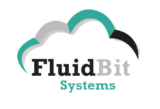- Emerging Patterns: Analyzing Current Events and Vital Business News.
- Global Economic Shifts and Market Volatility
- Technological Innovation and Disruptive Forces
- The Rise of Artificial Intelligence (AI)
- Geopolitical Dynamics and International Relations
- Sustainability and Environmental Concerns
Emerging Patterns: Analyzing Current Events and Vital Business News.
In today’s rapidly evolving global landscape, staying informed about current events and vital business developments is more critical than ever. The consistent flow of information, often referred to as the ‘news’, shapes markets, influences policy, and impacts individuals across the world. Understanding these trends requires careful analysis and a commitment to discerning credible sources from the proliferation of misinformation. This article aims to examine prevailing patterns within current affairs and significant business news, providing a comprehensive overview for those seeking to remain informed.
The accessibility of information has exponentially increased in recent years, driven by the advent of digital media and social platforms. However, this increased access comes with the challenge of navigating a complex information ecosystem. Critical thinking, media literacy, and a willingness to seek diverse perspectives are essential skills for individuals and organizations alike. The ability to effectively interpret current events is no longer a passive activity, but rather an active and necessary one.
Global Economic Shifts and Market Volatility
Recent months have witnessed notable shifts in the global economic landscape. Inflationary pressures, supply chain disruptions, and geopolitical instability have contributed to increased market volatility. Central banks worldwide are grappling with the challenge of managing inflation while avoiding a recession. These conditions pose a significant challenge for businesses across all sectors, forcing them to adapt and innovate in order to maintain profitability and resilience. The interplay between these factors is crucial for a nuanced understanding of the business environment.
| U.S. Inflation Rate | 3.2% | 3.7% | -0.5% |
| Eurozone GDP Growth | 0.1% | -0.1% | 0.2% |
| Crude Oil Price (per barrel) | $85 | $90 | -5.56% |
| Unemployment Rate (US) | 3.8% | 3.7% | 0.1% |
Technological Innovation and Disruptive Forces
The pace of technological innovation continues to accelerate, presenting both opportunities and challenges for businesses and societies. Artificial intelligence (AI), blockchain technology, and the Internet of Things (IoT) are among the key drivers of this transformation. These technologies have the potential to revolutionize industries, create new markets, and improve efficiency. Simultaneously, they raise ethical questions about data privacy, job displacement, and algorithmic bias. Successfully navigating this technological landscape requires adaptability, investment in research and development, and a proactive approach to addressing potential risks.
The Rise of Artificial Intelligence (AI)
Artificial intelligence (AI) is rapidly transforming the business world. Machine learning algorithms are being used to automate tasks, analyze data, and personalize customer experiences. This has created possibilities for cost reduction and enhancing the functionality of products/services. The rise of Generative AI, with models such as Large Language Models (LLMs), has opened new avenues for content creation, code generation, and problem-solving. However, the deployment of AI also raises concerns about job displacement and the potential for bias in algorithms. Ethical guidelines and responsible AI development practices are essential to maximize the benefits while mitigating the risks.
The integration of AI doesn’t simply amount to automating repetitive tasks. Companies are increasingly deploying AI to improve decision-making, enhance risk management, and drive innovation. The industries most significantly impacted include finance, healthcare, manufacturing, and retail. For instance, in healthcare, AI algorithms can assist in diagnosing diseases, personalizing treatment plans, and accelerating drug discovery. In finance, AI is used for fraud detection, algorithmic trading, and risk assessment.
Ultimately, the successful adoption of AI requires a strategic approach that considers not only the technological aspects but also the organizational, ethical, and societal implications.
Geopolitical Dynamics and International Relations
Geopolitical tensions and shifting international relations are profoundly impacting the global business environment. Conflicts, trade wars, and political instability create uncertainty and disrupt supply chains. Businesses operating internationally need to carefully assess the political risks and develop strategies to mitigate potential disruptions. Building resilience and diversifying operations are key to navigating these challenging conditions. The ability to understand and adapt to changing geopolitical dynamics is vital for long-term success.
- Increased Trade Protectionism
- Rising Cybersecurity Threats
- Escalating Conflicts in Key Regions
- Shifting Alliances and Diplomatic Relationships
- Resource Scarcity and Climate Change related conflict
Sustainability and Environmental Concerns
Growing awareness of environmental concerns and the urgency of climate change are driving a global shift towards sustainability. Businesses are facing increasing pressure from consumers, investors, and regulators to reduce their environmental impact and adopt sustainable practices. This includes investing in renewable energy, reducing carbon emissions, and promoting circular economy principles. Sustainable business practices are no longer just a matter of corporate social responsibility; they are becoming a critical factor for competitiveness and long-term viability.
- Implement energy-efficient technologies.
- Reduce waste generation.
- Source sustainable materials.
- Promote responsible supply chain practices.
- Invest in renewable energy sources.
| Apple Inc. | 85 | 72 | 100% Renewable Energy for Operations, Reduced Packaging Waste |
| Microsoft | 82 | 70 | Carbon Negative by 2030, Water Positive by 2030 |
| Unilever | 78 | 65 | Sustainable Sourcing of Raw Materials, Reduced Plastic Packaging |
| Tesla | 75 | 60 | Electric Vehicle Production, Battery Recycling Programs |
The interconnectedness of global events highlights the importance of staying informed and adapting to change. Informed decision-making, based on credible sources and thorough analysis, is valuable for navigating the complexities of the modern world. By understanding these patterns, individuals and organizations can better anticipate challenges, seize opportunities, and build a more sustainable and resilient future.
